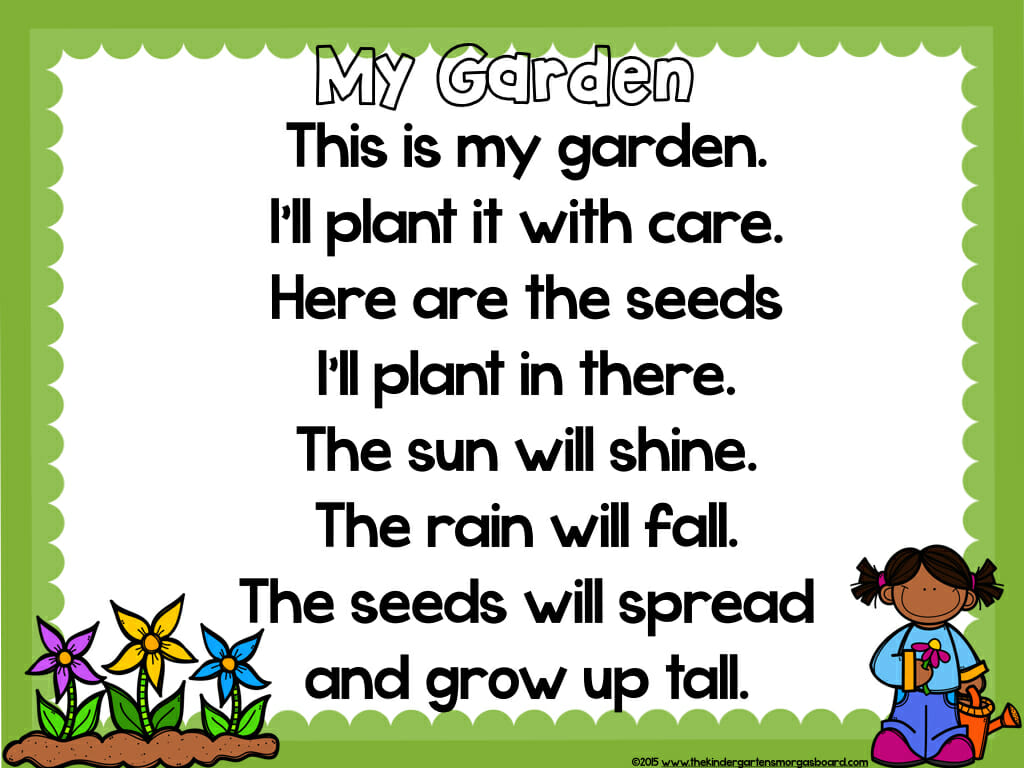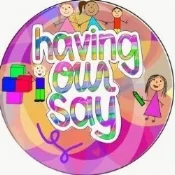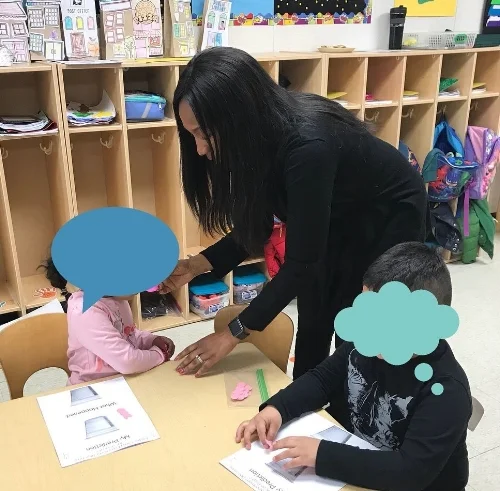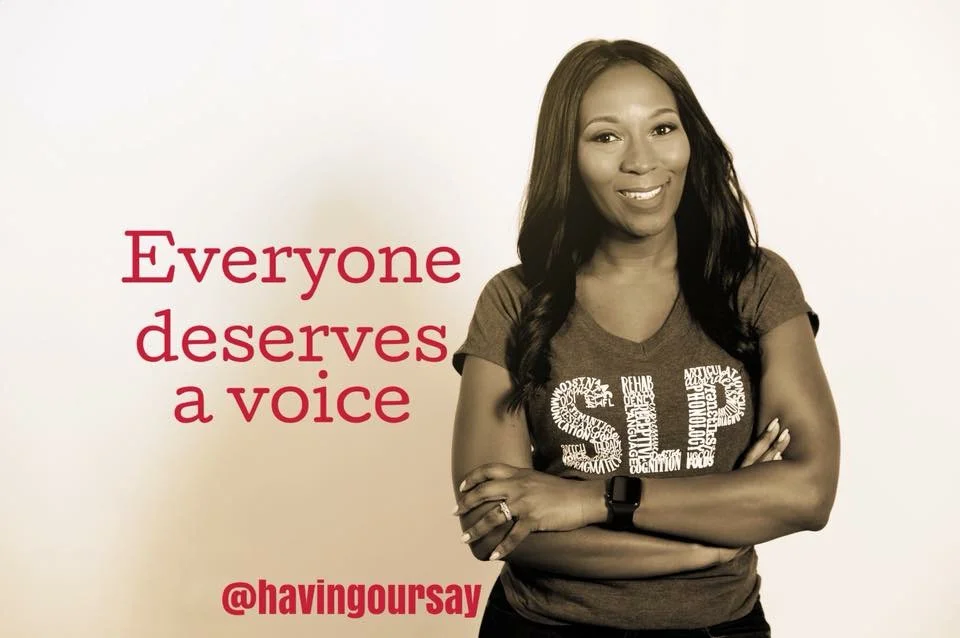7 Questions: Speech Pathologist Shontaye Glover Wants Kids to Have Their Say!
/Novelist Anna Quindlen once said, "Speech is the voice of the heart." It is the importance of words and voice that inspires Speech Pathologist Shontaye Glover's work with children with communication disorders.
For 7 Questions, Shontaye tells us about her field, parenting tips, the power of play, and why all kids need a chance to have their say!
Shontaye J Glover MS CCC-SLP - SPeech Pathologist
1. Tell me about yourself.
My name is Shontaye J. Glover. I was born and raised in New Jersey, where I currently reside with my husband and two daughters. I am a proud HBCU alum of Morgan State University and proud member of Delta Sigma Theta Sorority, Inc. (Alpha Gamma made :*).
I did my post graduate studies at William Paterson University where I studied communication disorders. I love shopping, running 5Ks, and basketball. Fun fact- I support the NJ turn BK Nets but have been a staunch Lakers fan since the 80's.
2. What exactly is Speech Pathology and why is it important?
Speech language pathology is the study of communication disorders. A speech language pathologist (SLP) is a professional that is certified and licensed to diagnose and treat issues related to speech, language, and swallowing. Once referred to as a speech correctionist/ speech teacher- it was believed that we correct lisps and help people produce sounds correctly. That is one aspect of our field, but we also assess, treat, and diagnosis voice disorders, stuttering, swallowing disorders, memory and cognitive deficits, vocabulary deficits, comprehension skills, social skills, reasoning and problem solving skills, and much more.
3. What made you start Having Our Say?
Honestly, Having Our Say was birthed from a Facebook Post! I had just completed a session with two children and neither child knew how to play a board game. They didn't understand how to move spaces according to the number on the dice or how to take turns appropriately. A few days later I encountered a child who had never played a card game (e.g. Uno, Go-Fish!) and I was shocked. It spurred me to write a FB post encouraging parents and caregivers to play board games and card games with their children. I explained all of the skills that are introduced, supported, and enhanced by simply playing games. Not to mention, playing games is an excellent opportunity to encourage and build language. NOTE: You can learn more about the benefits of play here.
The response to my post was overwhelming. My husband suggested I start blogging to share more tips and that was the genesis of Having Our Say. In addition to my blog site, I also took the leap of faith and began seeing patients privately. In June 2016, I started my private practice. I am unique in that I travel to my clients and provide services in their homes. This allows me the opportunity to work with children of all ages in their natural environment and I have the ability to model skills for parents that they can continue to practice when I am gone.
Shontaye at Work - www.havingoursay.org
4. What can parents do to encourage their child's speech development?
Talk to your children! Children begin to develop language skills within the first weeks of life. Making eye contact, smiling, and talking to your child are simple yet powerful ways to help strengthen those skills. Talk about your daily routines an label things that you see to help develop vocabulary skills. Another way to help develop language is by reading books.
5. When should a parent or teacher seek help from a Speech Pathologist?
If you have concerns- don't wait! Talk to your pediatrician and seek the advice of an ASHA (American Speech & Hearing Association) certified SLP. Children who receive intervention at an early onset have the best prognosis and see improvements faster. NOTE: This link will help you find an ASHA-certified SLP in your area.
6. How has your work with children affected your family life?
I must say I am truly blessed. I have chosen a career that makes me happy and provides tons of flexibility. Working as a school-based SLP means that I have the same schedule and calendar as my children. With my private practice, I can create the schedule that suits my needs and availability. I try to do all school-related work while working in the schools and I only focus on the private practice at home. I also try to leave Fridays and weekends open so that I can spend time with my family. But let me be clear- I do find myself running out of gas at times because I am a one-woman show. Managing billing, marketing, social media, blogging, purchasing- as well as providing services can take a toll. This year I learned the importance of taking some time for myself. You can't pour from an empty cup and I came to realize that when my body says take a break - TAKE THE BREAK! I am a much better wife, mother, friend, and clinician when I remember to take care of me.
7. What advice would you give fellow healthcare professionals who want to start their own practice?
If you are considering starting your own practice, the best advice I can give is to do it! Don't allow fear to keep you from accomplishing your goal. It is important to plan and do research, and if possible talk to someone in your field who has already taken that step. I was fortunate to have several women who served as mentors and guides along my journey.

























